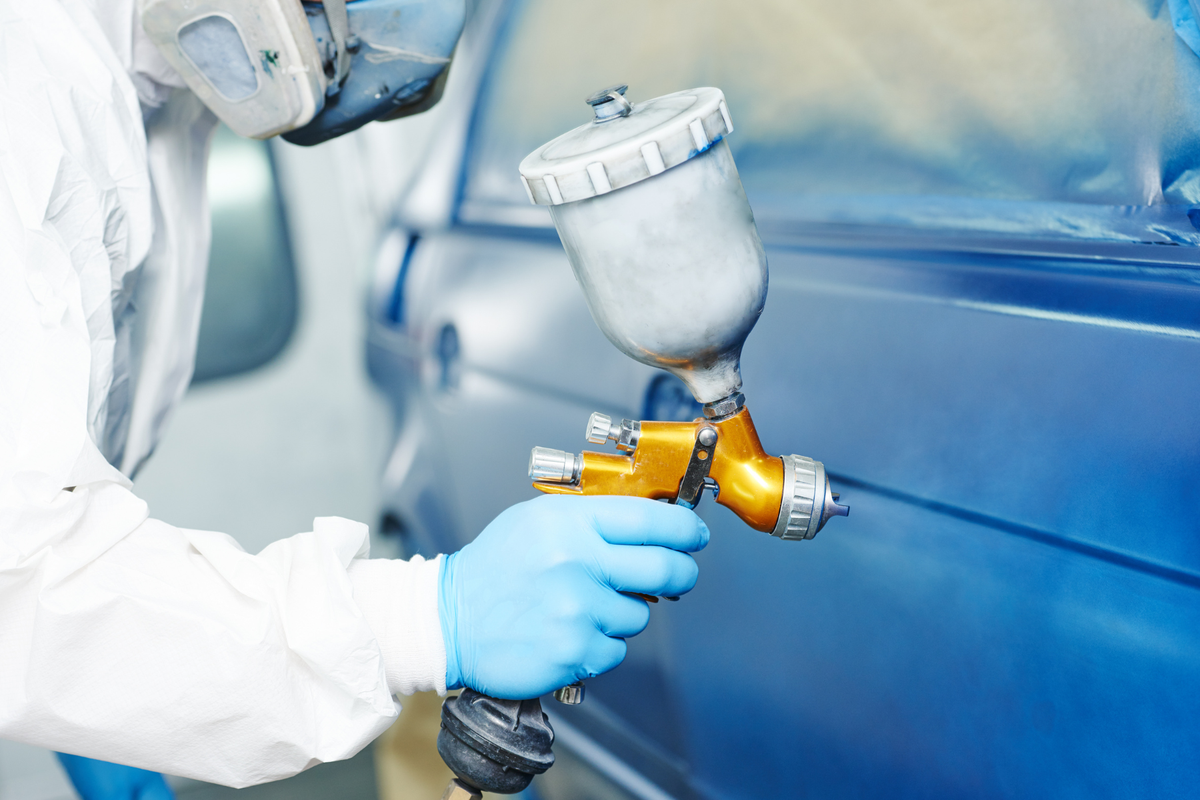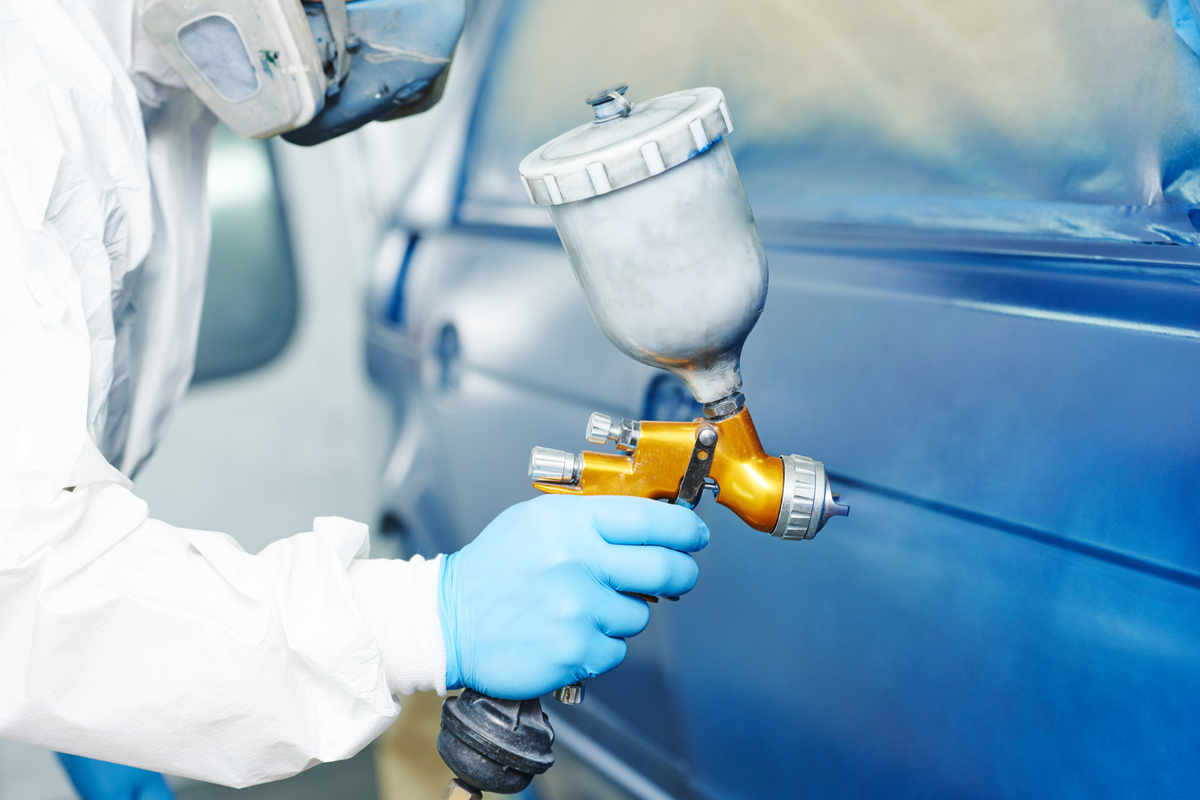Preventative Auto Maintenance in St. Joseph Mo – Essential Maintenance for Vehicle Longevity
Preventative Auto Maintenance Near Me St. Joseph Mo: Collision Repair Specialists: Your Expert in Preventative Auto Maintenance in Saint Joseph, MO
General Certification Information
At Collision Repair Specialists, we understand the importance of preventative auto maintenance to keep your vehicle running smoothly. Our team of experts is trained in a variety of services, including:
- Auto repair shops
- Oil change services
- Tire rotation
- Brake services
- Engine tune-up
 While we do not discuss specific certifications, we can assure you that our team is highly trained and knowledgeable in all aspects of preventative auto maintenance. We stay up-to-date on the latest industry standards and techniques to provide you with the best service possible.
While we do not discuss specific certifications, we can assure you that our team is highly trained and knowledgeable in all aspects of preventative auto maintenance. We stay up-to-date on the latest industry standards and techniques to provide you with the best service possible.
Our goal is to keep your vehicle running smoothly and prevent any potential issues before they become major problems. Regular preventative maintenance can save you time and money in the long run, and our team is here to help.
Whether you need an oil change, tire rotation, or engine tune-up, Collision Repair Specialists is your go-to expert in preventative auto maintenance in Saint Joseph, MO. Contact us today to schedule your appointment.
Collision Repair Specialists, 3900 Frederick Ave,St Joseph, MO 64506
For more information – Click Here
Experience Matters in Providing Quality Auto Maintenance Services
At Collision Repair Specialists in Saint Joseph Missouri, we understand the importance of preventative auto maintenance to keep your vehicle running smoothly. Our experienced technicians have the knowledge and skills to provide a range of services, including transmission services, car battery replacement, car inspection services, wheel alignment, and car detailing services. We use the latest technology and equipment to ensure your vehicle receives the best care possible.
- Our transmission services include fluid changes, filter replacements, and repairs.
- We offer car battery replacement services to keep your vehicle starting reliably.
- Our car inspection services include comprehensive checks of your vehicle’s systems and components.
- We provide wheel alignment services to ensure your vehicle handles properly and wears tires evenly.
- Our car detailing services include thorough cleaning and restoration of your vehicle’s interior and exterior.
Trust Collision Repair Specialists for all your preventative auto maintenance needs. Our experienced team is dedicated to providing quality services and keeping your vehicle in top condition.
Why Choose Our Car Services?
At Collision Repair Specialists in Saint Joseph Missouri, we offer a range of car services to keep your vehicle running smoothly. Our car wash services will keep your car looking its best, while our car maintenance services will ensure it stays in top condition. Our car diagnostic services can identify any issues before they become major problems, and our car air conditioning and heating services will keep you comfortable on the road.
- Regular car maintenance can prevent costly repairs down the line.
- Our car diagnostic services can catch issues early, saving you time and money.
- Properly functioning air conditioning and heating systems can improve your driving experience.
Quality Materials for Preventative Auto Maintenance
At Collision Repair Specialists in Saint Joseph Missouri, we understand the importance of using high-quality materials for preventative auto maintenance. Our car fluid services ensure that your vehicle’s fluids are clean and at the proper levels. We also offer car filter replacement to keep your engine running smoothly. Our car belt replacement and car hose replacement services prevent breakdowns and ensure safe driving. And don’t forget about car spark plug replacement, which improves fuel efficiency and reduces emissions.
- Car fluid services
- Car filter replacement
- Car belt replacement
- Car hose replacement
- Car spark plug replacement
Comprehensive Auto Maintenance Services in St. Joseph, MO
At Collision Repair Specialists, we understand the importance of preventative auto maintenance to keep your vehicle running smoothly. That’s why we offer a broad range of services to ensure your car is in top condition:
- Car timing belt replacement
- Car suspension services
- Car exhaust services
- Car fuel system services
- Car electrical services
Our experienced technicians use the latest technology and techniques to diagnose and repair any issues with your vehicle’s systems. We believe in providing quality service at an affordable price, so you can trust us to keep your car running safely and efficiently. Contact us today to schedule an appointment for your next auto maintenance service.
Preventative Auto Maintenance Services in St. Joseph, MO
At Collision Repair Specialists, we offer a range of preventative auto maintenance services to keep your vehicle running smoothly. Our car cooling system services include radiator and thermostat replacement, while our car alternator and starter replacement services ensure your vehicle’s electrical system is functioning properly. We understand that unexpected repairs can be costly, which is why we offer financing options to help you manage the costs of preventative maintenance. Contact us today to learn more about our services and financing options.
- Car cooling system services
- Car radiator services
- Car thermostat replacement
- Car alternator replacement
- Car starter replacement
Preventative Auto Maintenance in St. Joseph Mo Reviews and Testimonials
At Collision Repair Specialists in St. Joseph, MO, we understand the importance of preventative maintenance for your vehicle. That’s why we offer a range of services, including car fan belt replacement, car power steering services, car wiper blade replacement, car headlight replacement, and car taillight replacement. Our customers have been satisfied with our services, and we have received positive reviews and testimonials from them. Here are some of the reasons why:
- Our technicians are highly skilled and experienced in preventative maintenance services.
- We use high-quality parts and equipment to ensure the longevity of your vehicle.
- We offer competitive pricing and transparent communication throughout the process.
Don’t just take our word for it. Here are some testimonials from our satisfied customers:
| “I had my car’s fan belt replaced at Collision Repair Specialists, and I couldn’t be happier with the service. The technicians were friendly and knowledgeable, and the pricing was fair.” |
| “I needed my car’s taillight replaced, and Collision Repair Specialists did an excellent job. They were efficient and professional, and the pricing was reasonable.” |
| “I highly recommend Collision Repair Specialists for any preventative maintenance services. They are reliable, honest, and provide excellent customer service.” |
Trust Collision Repair Specialists for all your preventative maintenance needs. Contact us today to schedule an appointment.
Preventative Maintenance FAQs
At Collision Repair Specialists, we understand the importance of preventative maintenance for your vehicle. Here are some frequently asked questions:
- When should I replace my car’s brake pads?
- How often should I replace my car’s brake rotors?
- What are the signs that my car’s shock absorbers need to be replaced?
- What is the difference between a car’s strut and shock absorber?
- When should I replace my car’s ball joints?
Regular maintenance can prevent costly repairs down the road. Our experienced technicians can help keep your vehicle running smoothly and safely. Contact us for more information.
Advantages of Auto Maintenance Services
of preventative maintenance:
- Extends Vehicle Lifespan: Regular maintenance helps keep your car running efficiently for longer, extending its lifespan.
- Prevents Major Repairs: By catching issues early, preventative maintenance can prevent minor problems from becoming major, costly repairs.
- Improves Safety: Regular checks and maintenance ensure that critical components, like brakes and tires, are in good condition, enhancing your safety on the road.
- Enhances Performance and Reliability: Keeping your car well-maintained improves its performance and reliability, ensuring it runs smoothly and efficiently.
- Increases Fuel Efficiency: A well-maintained vehicle operates more efficiently, which can lead to improved fuel efficiency and lower fuel costs.
- Maintains Vehicle Value: A well-maintained car has a higher resale value, as maintenance records can prove it has been well cared for.
- Reduces Roadside Emergencies: Regular maintenance reduces the likelihood of experiencing unexpected breakdowns or roadside emergencies.
Overall, preventative auto maintenance is a smart investment for your vehicle’s longevity and your safety on the road. Contact us for more information on our services.
| St. Joseph is a city in Andrew and Buchanan counties and the county seat of Buchanan County, Missouri, United States. Located on the Missouri River, it is the principal city of the St. Joseph Metropolitan Statistical Area, which includes Buchanan, Andrew, and DeKalb counties in Missouri and Doniphan County, Kansas. As of the 2020 census, St. Joseph had a total population of 72,473, making it the 8th most populous city in the state, and the 3rd most populous in Northwest Missouri. St. Joseph is located roughly thirty miles north of the Kansas City, Missouri, city limits and approximately 125 miles (201 km) south of Omaha, Nebraska. |
Citations:
| Name | Description |
|---|---|
| National Institute for Automotive Service Excellence (ASE) | The ASE is a non-profit organization that provides certification for automotive professionals. Their mission is to improve the quality of vehicle repair and service by testing and certifying automotive professionals. Visit their homepage. |
| Automotive Maintenance and Repair Association (AMRA) | The AMRA is a non-profit organization that provides training and certification for automotive repair shops. Their mission is to promote excellence in automotive repair and maintenance. Visit their homepage. |
| National Highway Traffic Safety Administration (NHTSA) | The NHTSA is a government agency that is responsible for promoting safety on the nation’s highways. They provide information and resources on vehicle safety, including preventative maintenance. Visit their homepage. |
| Motorist Assurance Program (MAP) | The MAP is a non-profit organization that provides accreditation for automotive repair shops. Their mission is to promote consumer confidence in the automotive repair industry. Visit their homepage. |
| International Automotive Technicians Network (iATN) | The iATN is an online community of automotive professionals that provides resources and support for automotive repair and maintenance. Their mission is to promote excellence in the automotive industry. Visit their homepage. |

